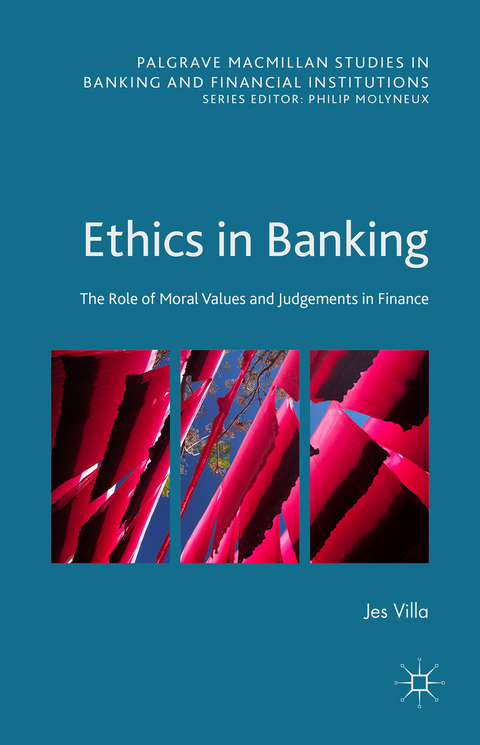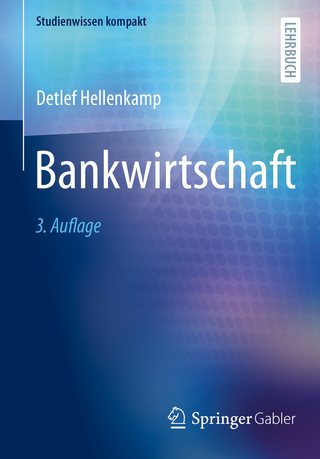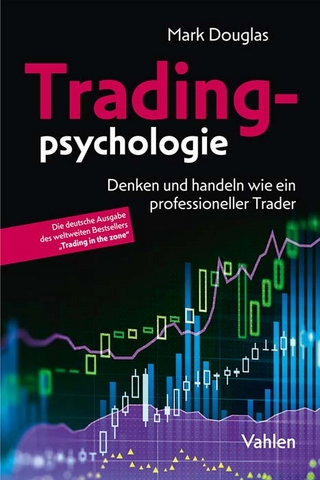
Ethics in Banking
Palgrave Macmillan (Verlag)
978-1-137-34340-6 (ISBN)
This book investigates the ethical basis of banking practice. It explores the conflict between the interests of banks and their customers, and how this conflict plays out in relation to the lending policies and fee structures of banks. Where such lending policies have a significant effect on banks, their customers and a range of stakeholders, the author investigates the views of leading bankers on their lending practices. The author then goes on to debate the events of the global financial crisis from a moral perspective, and argues that ethical failure triggered the American sub-prime calamities which have devastated homeowners and the global economy. The book argues that American banks and regulators both operated on the erroneous supposition that the quest after extreme profits would be restrained by free market forces.
Where banks have a central role and importance in all commerce and hence in all societies, the author concludes by revealing a set of virtues that are necessary for banks to espouse moral conduct. He suggests that these virtues can be embedded through leadershipand cultural change, with the aim of developing an account of the virtues appropriate to bankers and banking.
Jes Villa has held various professional positions in investment banking in New York, Chicago, Asia, and Australia, and rose to hold Chief Executive and Managing Director positions in various firms specialising in corporate finance and private equity. He received an MBA from Wharton School, University of Pennsylvania, USA. He obtained a PhD in Philosophy and Ethics from University of Tasmania, Australia / Ludwig-Maximilians-Universität, University of Munich, Germany. He now lectures at Weihenstephan-Triesdorf University of Applied Sciences in Munich, Germany.
PART I. APPROACHING BANKING FROM A PHILOSOPHICAL PERSPECTIVE 1. Global credit crisis A. Apocalypse B. Paradise lost C. Banks and household debt D. Judgment on the banks 2. Views of banking ethics A. Development of modern banking B. Necessity for banks in contemporary period C. Usury D. Profit motive E. Utilitarianism F. Categorical imperative G. Categorical imperative in banking ethics H. Social contract theories 1. Contractarianism 2. Contractualism 3. Social contract methodology in business ethics I. Virtue ethics J. Specific concerns in finance and banking ethics PART II: THE IDEA OF ETHICS IN BANKING: SELF CONCEPTIONS AND CRITIQUE 3. Ethical understanding in the banking sector A. Retail deposits 1. Trust 2. Product differentiation B. Credit cards and personal loans C. Housing mortgage loans D. Corporate finance E. Foreign exchange and securities trading F. Code of conduct G. Bank self-assessment 4. Self-governance and state regulation A. Code of banking practice B. Regulation in hong kong 1. Financial crises in retrospect 2. The hong kong monetary authority 2.1 credit cards 2.2 housing loans 2.3 negative equity problem 2.4 supervisory stance 3. Attitude of banks towards hkma C. Regulation in australia 1. Deregulation, banking crisis, and recession 2. New regulatory model 3. Attitude of australian banks towards regulators 5. Preliminary conclusions A. Diminution of responsibility B. Departure from fairness C. Opacity or transparency? PART III: HARSH REALITIES AND CRITIQUE OF BANKING ETHICS 6. The sub-prime crisis: an ethical failure? A. Eviction from homes B. Sub-prime mortgages analysed C. Housing meltdown D. Origins of chaos 1. Financial wizardry 2. Upsurge in securitisation D. Chapter 7. Impact of securitisation A. Metamorphosis of banking B. Implosion of the sub-prime market C. Loss of trust D. Mutual mistrust and credit squeeze E. Panic in the markets F. Initial american policy remedies G. Banking collapse averted H. Accomplices in bubble architecture I. Ethical deficiency or selfishness Chapter 8. Conclusions A. Forgetfulness of responsibility B. Injustice B. 1. Rational actor theories B. 2. Deficiencies of the rational actor paradigm B. 3. Misguided risk management B. 4. Abandonment of prudence B. 5. Initial market reception B. 6. Contagion C. Challenges to integrity D. Prognosis for the future D. 1. Ethical pluralism D. 2. Glimmer of hope D. 3. Implications for action Appendix a. Interview with bank chief executives (questions presented at interviews) Appendix b. Questionnaire on bank practices (questions presented at interviews) Appendix c. Interview transcripts Bibliography: (a) works cited Bibliography: (b) additional works consulted
| Erscheint lt. Verlag | 17.9.2015 |
|---|---|
| Reihe/Serie | Palgrave Macmillan Studies in Banking and Financial Institutions |
| Zusatzinfo | XI, 212 p. |
| Verlagsort | Basingstoke |
| Sprache | englisch |
| Maße | 140 x 216 mm |
| Themenwelt | Naturwissenschaften |
| Wirtschaft ► Betriebswirtschaft / Management ► Finanzierung | |
| Betriebswirtschaft / Management ► Spezielle Betriebswirtschaftslehre ► Bankbetriebslehre | |
| Wirtschaft ► Betriebswirtschaft / Management ► Unternehmensführung / Management | |
| Wirtschaft ► Volkswirtschaftslehre | |
| ISBN-10 | 1-137-34340-0 / 1137343400 |
| ISBN-13 | 978-1-137-34340-6 / 9781137343406 |
| Zustand | Neuware |
| Haben Sie eine Frage zum Produkt? |
aus dem Bereich


